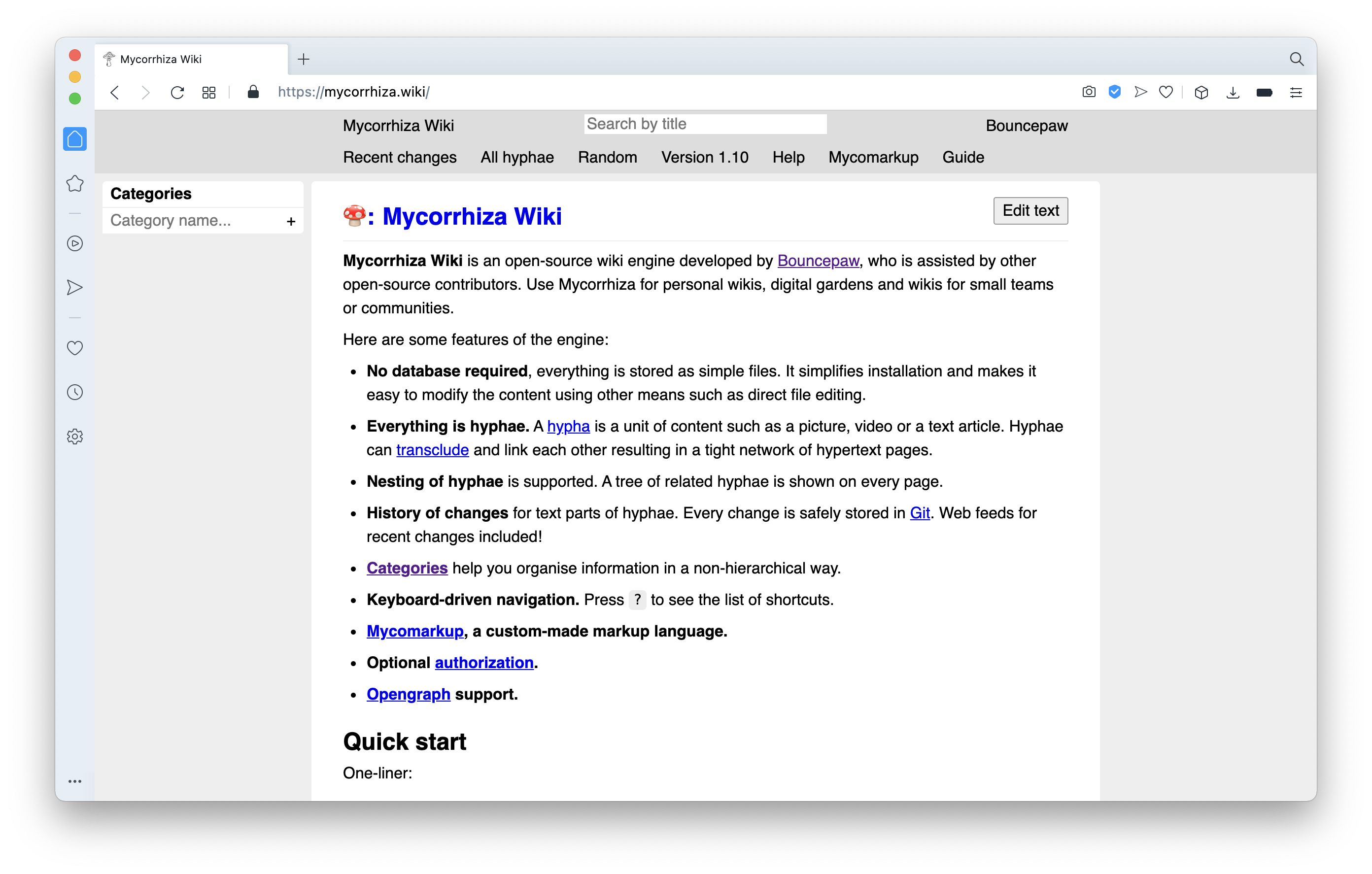Mycorrhiza is a Flat-file Self-hosted Wiki Engine
Filesystem and git-based wiki engine written in Go using Mycomarkup as its primary markup language.
Table of Content
Mycorrhiza Wiki is an open-source wiki engine developed by Bouncepaw, who is assisted by other open-source contributors. Use Mycorrhiza for personal wikis, digital gardens and wikis for small teams or communities.

Features
- No database required. Everything is stored in plain files. It makes installation super easy, and you can modify the content directly by yourself.
- Everything is hyphae. A hypha is a unit of content such as a picture, video or a text article. Hyphae can transclude and link each other, forming a tight network of hypertext pages.
- Hyphae are authored in Mycomarkup, a markup language that's designed to be unambigious yet easy to use.
- Categories let you organize hyphae without any hierarchy restrictions, with all the benefits of a category system.
- Nesting of hyphae is also supported if you like hierarchies.
- History of changes for textual parts of hyphae. Every change is safely stored in Git. Web feeds for recent changes included.
- Keyboard-driven navigation. Press
?to see the list of shortcuts. - Support for authorization. Both plain username-password pairs and Telegram's login widget are supported.
- Open Graph support. The most relevant info about a hypha is made available through OG meta tags for consumption by other software.
- Easy deployment and setup
License
Mycorrhiza Wiki is released under the AGPL-3.0 License.










